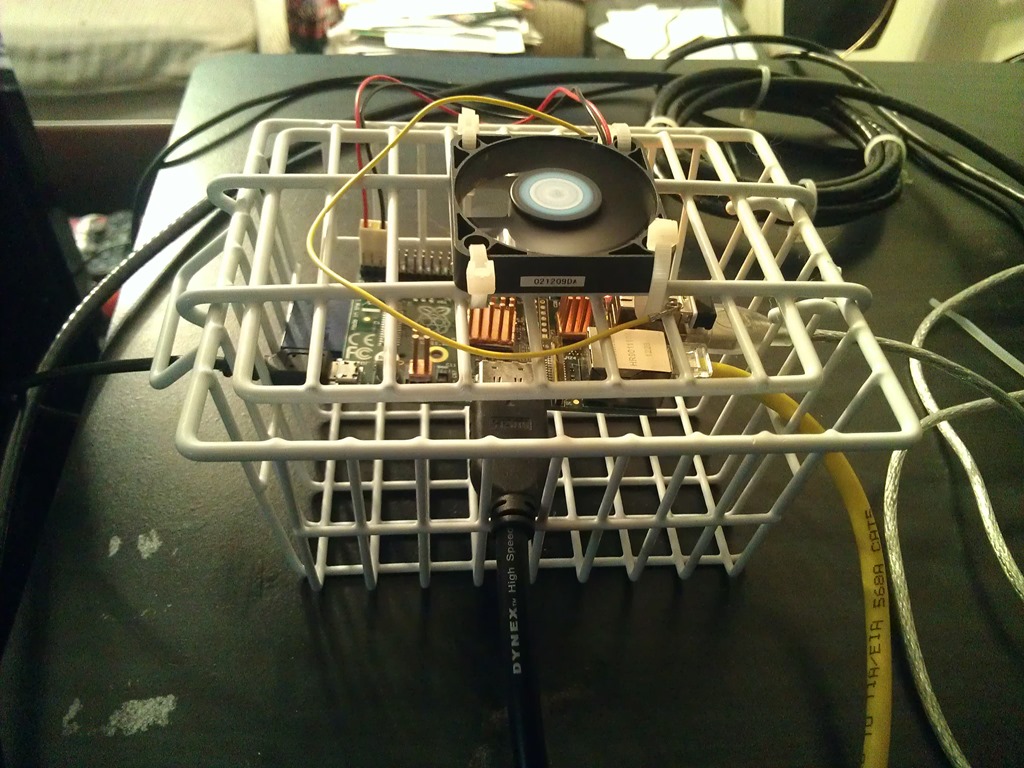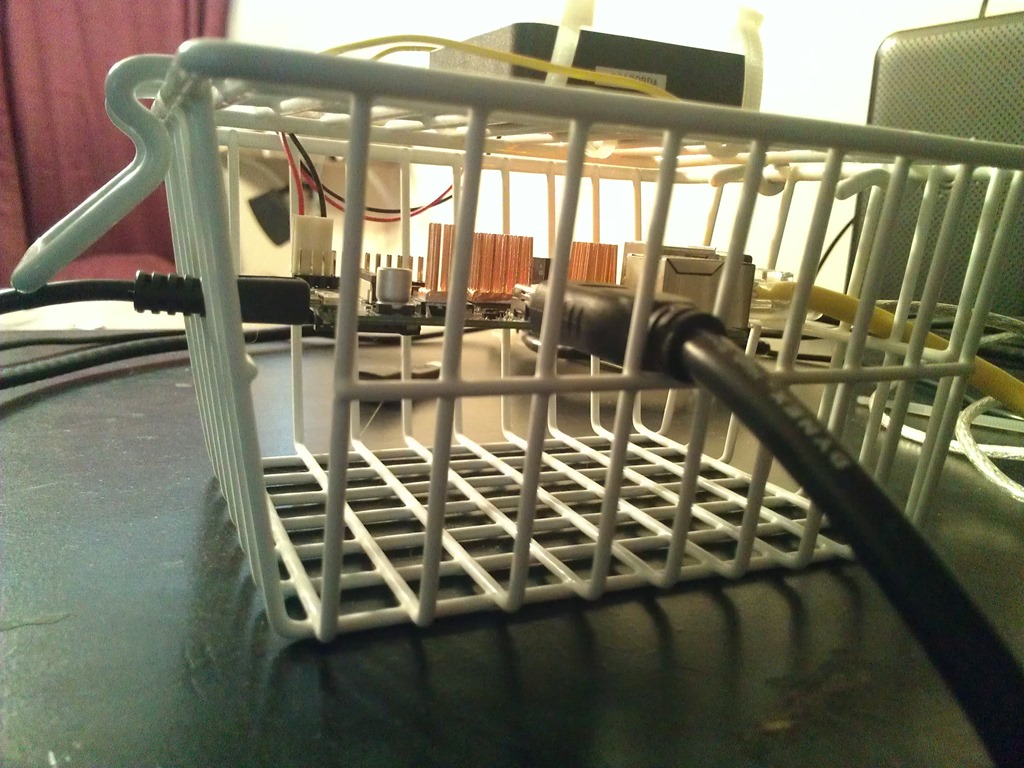Apparently lost on financial planners and financial commentators is the fact that paying off debt is the only guaranteed way to increase your overall wealth. Everything else is a gamble. The recent idiot to advocate against paying down a mortgage early is Diana Bocco of Yahoo! Homes in her article “Why paying down your mortgage early is a bad idea“.
The only reason paying down your mortgage early is a bad idea is because of its overall effect on the money supply. Remember that, in our monetary system, money comes into existence only through loans, and the total amount of money in circulation is related to the total amount of debt everyone has. Paying down debts shrinks the money supply, and we can’t have that happen, now can we…
And to support her claim, Ms Bocco quotes Barry Habib. Who is Mr Habib? He is the Chief Market Strategist for Residential Finance. In other words, she talked to a mortgage lender on reasons why you shouldn’t pay down your mortgage early. That’s like talking to your local butcher on reasons you should not turn toward vegetarianism… Of course a mortgage lender is going to advocate against you paying down your mortgage early, because they lose a lot of cash in interest when you do so.
But let’s look a the four reasons Ms Bocco says you should not pay off your mortgage early:
1. Prepayment penalties
Did you know that paying your mortgage early could result in a fine? That’s because some lenders “punish” you for getting out of your loan earlier than expected.
If your mortgage comes with a prepayment penalty, then you need to figure that into your payoff plan, plain and simple. But don’t let that deter you from paying off your mortgage early. You will still come out ahead, even if there is a penalty for early payoff. And if you’re in the market for a mortgage, be sure to negotiate against a prepayment penalty. You might have to take a slightly higher interest rate to do so, but it’ll be better for you overall.
2. You need to save for your retirement or your child’s college fund
In addition to ensuring that you’re financially set after retirement, making contributions to retirement plans – like IRAs and 401(k)s – instead of paying off a mortgage early, is smart because the interest they earn is not taxed until you retire, says Walsh. What’s more, borrowers are able to deduct mortgage interest from their income, so when they put extra cash into an IRA or 401(k), it’s a huge tax deduction all around.
One thing no one seems to realize anymore is that retirement accounts are investment accounts. And what is the one disclaimer on all investment accounts? Here’s mine for my 401(k):
Before investing in any mutual fund, please carefully consider the investment objectives, risks, charges and expenses. For this and other information, contact Fidelity for a free prospectus or, if available, a summary prospectus. Read it carefully before you invest.
Risk is involved. Returns are not guaranteed. This means that your 401(k) could be a nice nest egg one week, and worth not a lot the next, depending on how things go. Seriously, why do these financial experts and commentators treat retirement accounts like they’re low-risk investments? They are not. They are variable-risk investment accounts, in that the risk you have is based on what investments you have set up as part of your account portfolio. They are not low-risk or no-risk accounts.
As such, again, the only guaranteed way to increase your wealth is to pay off your debts, prioritizing your secured debts (mortgage and car payments) over your unsecured debts (student loans and credit card).
And don’t get me started on this idea the parents need to pay for their kids’ college education. Give me a fucking break…
3. Paying off your mortgage has tax implications
Oh this ought to be good…
It sounds strange that paying off your mortgage early can cost you in the long run, but it certainly can be the case when taxes are involved.
She focuses quite a bit on what is called the Mortgage Recording Tax. But by bringing this up, Ms Bocco is basically playing games of “what if” by saying you could end up paying the mortgage recording fees multiple times:
Well, let’s say that you decide to pay off your mortgage as quickly as possible. Then, you suddenly need a large amount of cash, and decide to access some of your home equity through a cash-out refinance. In this case, the MRT would be due a second time, Reiss explains. That’s because under New York law, the MRT must be paid when a new mortgage is created and recorded on a property (as is the case with a refinance).
What she’s not saying is that the mortgage recording tax is not a universal phenomenon and is also only a recent phenomenon. Only 7 States have a mortgage recording tax. Could the idea spread to all 50 States? Perhaps, especially as State governments become more strapped for cash. But otherwise, bringing this up is nothing but fear-mongering.
So, if you think you might need to access home equity in the near future (to pay for college bills or a home renovation, for example), focus on saving money for that particular purpose instead of paying down your mortgage early, says Reiss.
Okay this is about the only sound piece of advice this article seems to give. Certainly if you have large expenses coming up, then definitely forego accelerating a mortgage pay off to handle those expenses. And try to have savings or other credit available in case of the unexpected. And also make sure you have your insurance paid up as well.
At least they didn’t mention the mortgage tax deduction…
4. You could invest the money elsewhere for a better ROI
And here’s where things go south…
If your investment accounts are non-existent, it might be wise to grow them with the money you would otherwise use to pay off your mortgage early, according to Walsh.
Walsh offers this example to illustrate his point: Let’s say you have a 30-year fixed-rate mortgage for $150,000, at 3.5 percent interest. “Your payments over the life of the loan will total $242,484 – with $92,484 of that being interest,” Walsh says.
Any time numbers come into the discussion, dismiss them. For one, these numbers make a lot of assumptions and attempt to woo you into a particular line of thinking based on less than all the facts. For one, how many people would qualify for a 3.5% interest rate on a mortgage? In today’s lending environment, likely not many of us would.
Again, investments do not have a guaranteed ROI. Paying off your mortgage early does, in the form of an accelerated increase in equity in your property and less overall paid during the term of the mortgage note. Then, once you have the mortgage paid off, you’ll have extra money to put into investments. Sure you might lose the benefit of compounding investment profits while you’re paying off your mortgage, but you’ll have the house free and clear and, more importantly, you’ll be significantly wealthier in the end because you won’t have that mortgage liability hanging over your head.
Meaning if, for some reason, you end up losing your job or some other financial emergency comes up, at least you won’t lose your home or ruin your credit for not being able to keep up on a mortgage. Plus if a financial emergency comes up, you can always pull off your accelerated mortgage payoff for a period of time, and you’ll still be coming out ahead in the long run.
Continuing… (emphasis added)
Although those numbers sound scary – investing the money could still make sense, depending on what the returns are. For example, if you invested the $150,000 in mutual funds at 6 percent returns annually, you will end up with $861,523 at the end of 30 years.
Again, this is just a bunch of “what ifs”. What if the stock market tanks again like it did just 5 years ago? In the preceding decade, we’ve had several significant stock market downfalls or crashes (here, here, here, here, here and here), plus the downgrade on the credit rating of the United States in August 2011. That makes the stock market anything but a guaranteed return, so naming any kind of AROI for the stock market is just wishful thinking and not something on which anyone should rely.
As such, people today are shedding debt like nothing. If they take on mortgages or other high-cost or long-term debt, they want to be rid of it as quickly as possible rather than holding onto it and hoping their investments pan out in the long term. It again comes down to guaranteed returns. Paying off your mortgage is a guaranteed return, because you are increasing equity in your home while saving on interest in the long run.
Going back to Barry Habib, who said “there is more to making a good decision than just looking at the financial calculations” for this article, the one thing commonly overlooked is that all financial decisions are the result of calculations. There are tradeoffs to every decision you make. But when you are weighing a guaranteed return against a not-so-guaranteed return on an investment, the decision should be a no-brainer: paying off debt should always take priority over investments. Paying off debt is a guaranteed increase in your net wealth.
It’s amazing how decades ago debt was never seen as a good thing, whereas today it is. Decades ago people would never have held onto a mortgage if they could pay it off. Remember, there is no such thing as good debt, something that in recent years a lot of people have relearned.
But when you consider that in a lot of these cases, the people saying you should do the opposite – prioritize investments over paying off your debts – are people with a financial incentive to advocate that opposite, it’s no wonder why a lot of people are getting a lot of bad financial advice today, in the wake of a stock market crash and financial crisis still fresh in everyone’s minds.
After all, they’re just looking out for their bottom line, so perhaps you should look out for your own as well.


You must be logged in to post a comment.